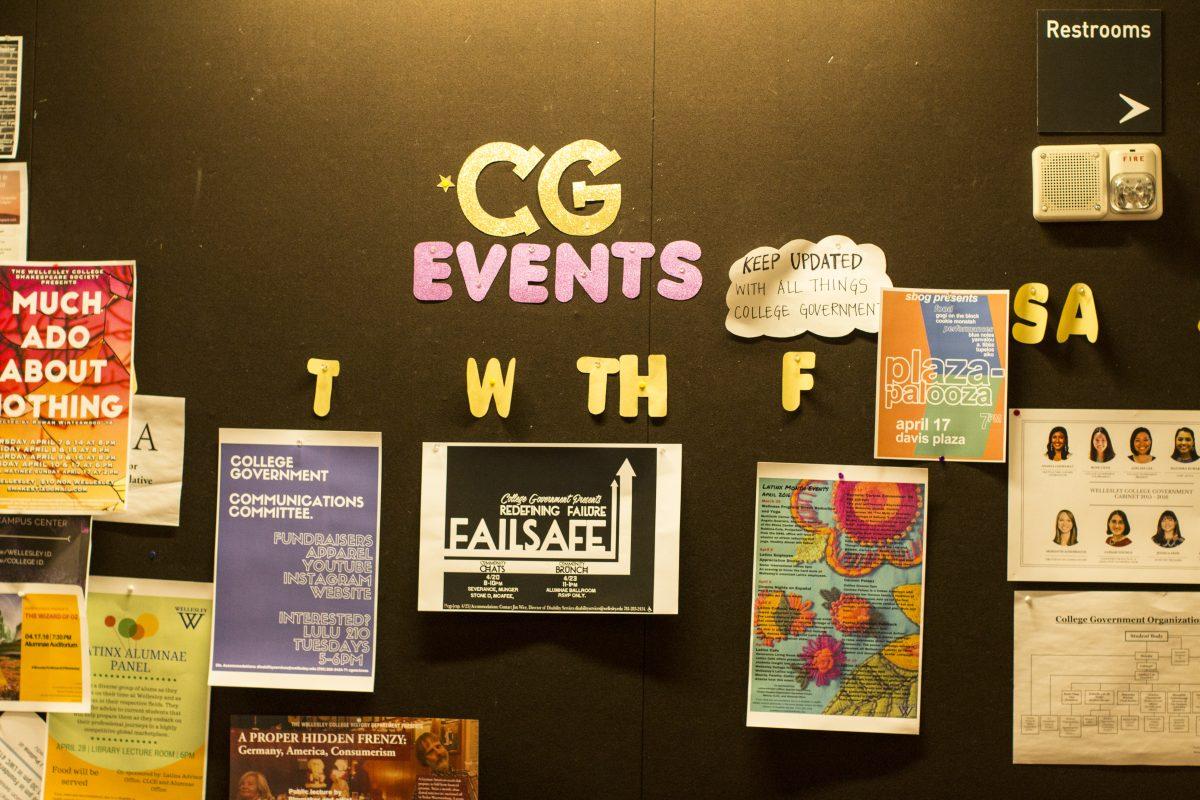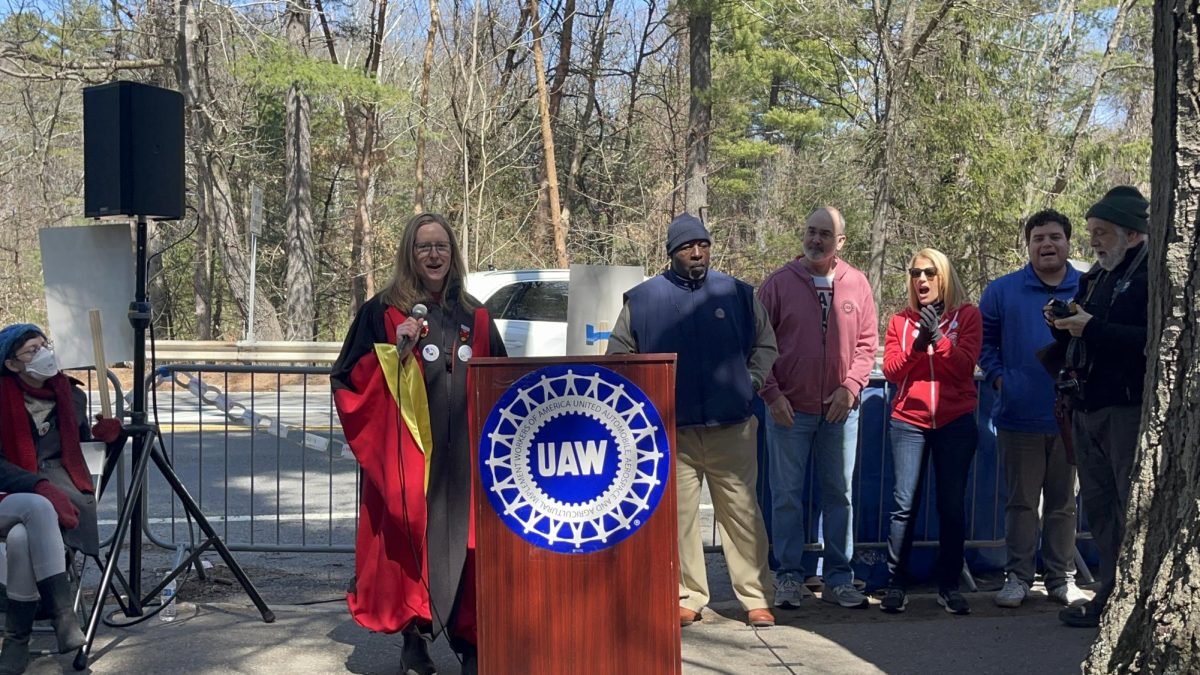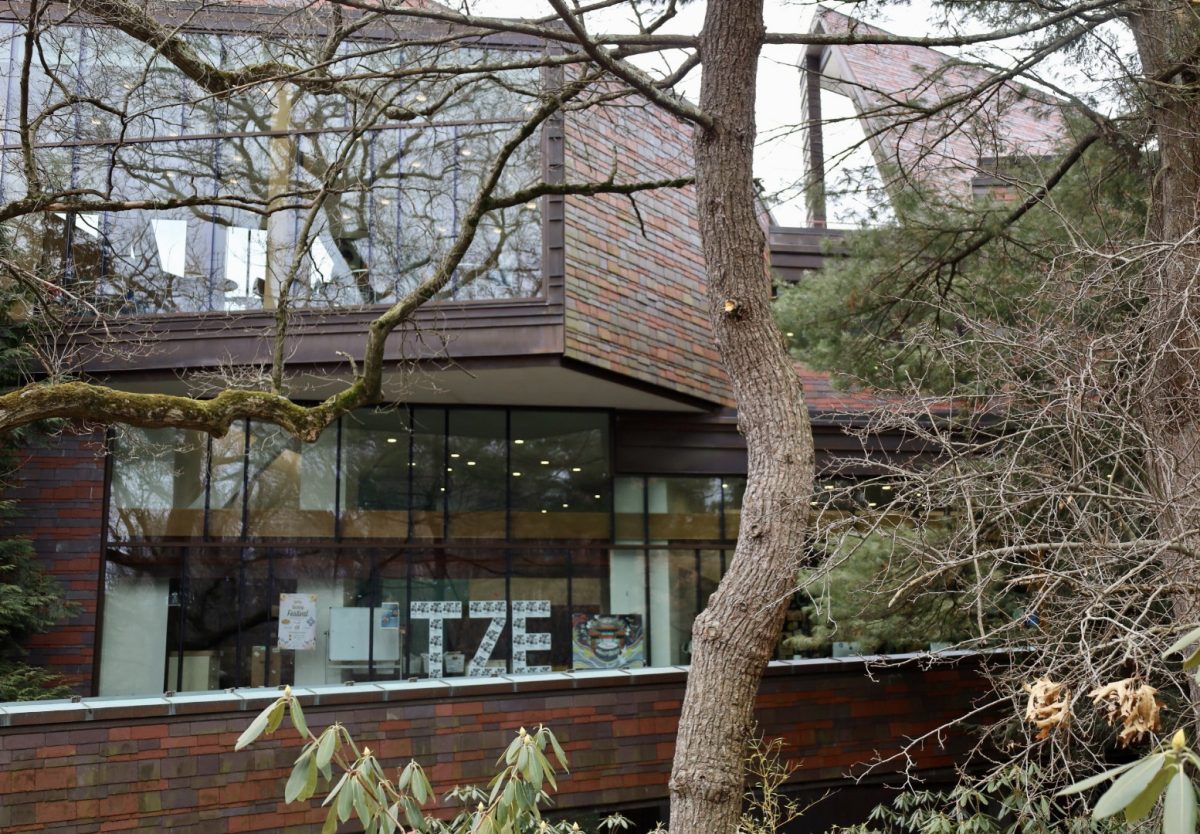On April 4, the Wellesley College student body received an email from the College Government Elections Committee informing them that a candidate for Chief Justice, Myra Ahmad ’17, had been removed from the ballot and was now running as a write-in candidate. This detailed email gave an account of events that transpired, resulting in Ahmad’s removal from the ballot.
According to the email, Ahmad was removed because members of her campaign team began campaigning before the designated time and her spam was inconsistent with the spamming regulations detailed in The Elections Handbook for this year.
Ahmad made a public statement on her Facebook page explaining what had occurred, assuming responsibility for the actions of the team members who campaigned 15 minutes before the designated time.
“I do not condone their starting early, but I accept responsibility for the outcome,” Ahmad wrote.
As stated in the email and Ahmad’s public statement, Ahmad would be allowed to remain on the
ballot if she satisfied conditions given by Elections Committee at a meeting between Ahmad’s campaign team and the committee. One of these conditions involved correcting mislabeled campaign spam. Ahmad wrote in her statement that she was removed from the ballot officially on the afternoon of April 1, stating she had committed a second violation because of mislabeled spam. She acknowledged that her spam was lacking the email for disability services on campus.
“My spam did not have the exact same language as the handbook. However, the elections handbook had inconsistencies with the college spam policy. Therefore, there are many variations on other candidates’ spam as well,” Ahmad explained in her statement.
Addressing the inconsistency in other candidates’ spam, Co-Chair of Elections Committee and current College Government President Adeline Lee ’16 acknowledges the inconsistencies in other candidates’ spam. However, Ahmad’s situation was different because her campaign had already committed an election week violation by campaigning before the determined time.
“The case of Myra is different because we were providing her a second opportunity to demonstrate that she was able to respect process and the guidelines upon which we as elections committee had laid what the conduct was meant to be for the election week,” Lee said. It was important for Lee and the Elections Committee that the guidelines put in place for candidates were upheld throughout elections week.
Ahmad and the Elections Committee were both clear on the fact that maliciously.
“I hope you [the student body] understand that there was no malicious intent,”Ahmad wrote in her statement. The Elections Committee did not foresee something like this happening during the campaign process and did not have any precedent for dealing with this kind of situation. Although there was not a distinct protocol for how to handle the situation, The Elections Committee devoted an exorbitant amount of time to making sure the process was fair for both parties given the time constraint.
“EC [Elections Committee] members spent a total of 9 hours over the course of two days between smaller and larger committee meetings in deliberation over how to approach this particular case,”
from the Elections Committee said.
The Elections Committee was also careful to make sure that its statement to the campus was very transparent.
“We spent a collective four to five hours writing it, so there is a lot of care and detail,” Lee said.
Lee is a non-voting member of Elections Committee, but she is confident in the decision made by voting members given the time sensitivity of the issue. Since College Government elections last for only one week, Lee regrets not having more time to deliberate. However, she did emphasize that Elections Committee spent at least 15 hours deliberating Ahmad’s case on top of classes and other extracurricular activities in which Elections Committee members participate.
Both incoming and outgoing members of cabinet expressed immense interest in revising the Elections Handbook so future candidates and Elections Committees could have guidelines as to how to deal with unforeseen situations.
Newly elected College Government President Zainab Younus ’17 wishes to start early on revising the Handbook and welcomes student body participation.
“We will be starting this semester with that work, so that it is not pushed off until the end next year right before elections,” Younus said.
Photo by Megan Stormberg’18






